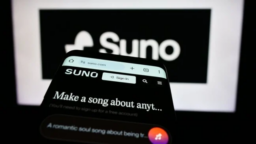Last summer, French media empire Vivendi announced it planned to sell up to 50% of its subsidiary, Universal Music Group, in a process which it said could be completed within 18 months.
That gave us our first important date on a crucial timeline for the global recorded music business: Vivendi was suggesting it would get a part-sale of UMG wrapped up by January 2020.
In February this year, we learned that Vivendi was looking to appoint up to “half a dozen” investment bank advisers to accelerate the process; two months later, Vivendi said this procedure would be completed “shortly” and “without haste”.
Today, two important bits of news. The first, headline-grabbing suggestion, from a Bloomberg report, is that Vivendi is facing difficulties in the sale process of UMG. The publication cites sources who say “some private equity investors balk at the high price and slow pace of the deal”.
Vivendi is still yet to formally hire advisers, says Bloomberg, more than five weeks after the company announced its (and UMG’s) Q1 results. Reportedly, “several financial investors” have already lost interest in a UMG deal.
However, the second part of Bloomberg’s story may prove even more important: it reveals that Vivendi has already held talks with Tencent Holdings Ltd about a minority investment in Universal Music Group.
This would potentially be a continuation of a relationship which began in earnest in May 2017, when UMG inked a new, expansive deal for Tencent to exclusively sub-license its catalog in China – while agreeing to work in partnership with the Shenzhen-based company to design, build and develop Abbey Road Studios China, a ‘state-of-the-art recording and mastering facility’.
If that 2017 UMG/Tencent deal was for a two-year term, it would now be up for renewal – and, you’d expect, such talks would naturally lead to a discussion about Tencent’s interest in buying a stake in UMG.
Tencent, which currently carries a $390bn market cap on the Hong Kong Stock Exchange, is the majority shareholder in Tencent Music Entertainment, which has traded on the New York Stock Exchange since the end of last year.
The macro-economic background for a Tencent/UMG deal, however, isn’t kind – with China currently locked in a tense trade stand-off with the United States.
Bloomberg’s report further suggests that certain suitors “have been dismayed by the minimum value [of UMG] of 25 to 30 billion Euros” – equivalent to $28bn to $33bn – that Vivendi is seeking for the business.
It adds that some “potential advisers have floated the idea of a majority stake [sale] to gauge interest and test valuations”.
A Vivendi spokesperson said that the timing of the sale process of UMG was, from the French company’s perspective, ticking along as expected.
The highest valuation slapped on UMG so far has come from JPMorgan, which in February suggested the company could be worth as much as $50bn.
JPMorgan Cazenove media analyst, Daniel Kerven, described UMG as “a unique asset” which owns and controls “undermonetized, must-have, global content that is strategic to the tech giants and can’t be replicated”.
Potential buyers for Universal Music Group mooted to date have included Tencent, Alibaba, KKR, Apple, Verizon, Amazon and Liberty Media.
[Pictured: Universal Music Group boss Sir Lucian Grainge giving a speech at the Music Is Universal showcase in Los Angeles on February 9]Music Business Worldwide





